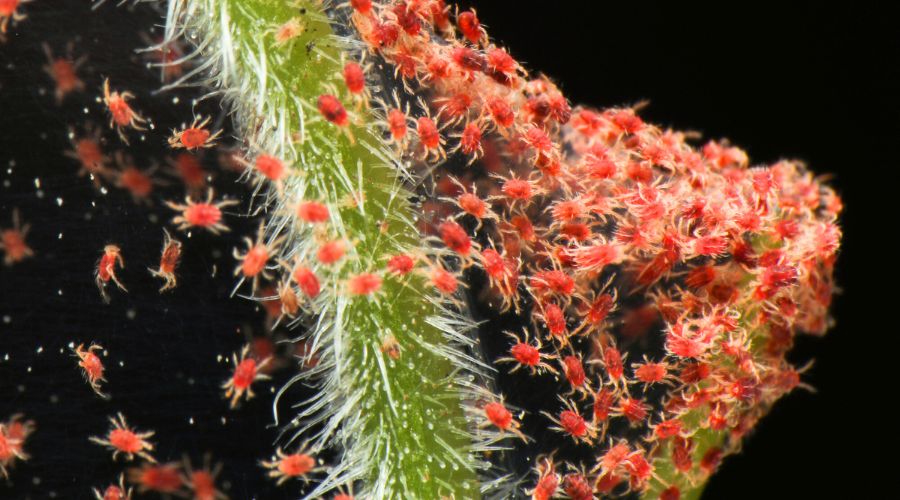Products delivering surprising spider mite control
20th July 2024
Recent trials assessing the impact of various products with physical modes of action on spider mite control have found the results to be “extremely encouraging”.

Secover, a silicone-based foliar spray that is not deemed a plant protection product, delivered sufficient control of two-spotted spider mite (Tetranychus urticae) for it to be considered as a complement to Kanemite (acequinocyl) in the early stages of the season.
Using her BASIS project as an opportunity to trial five acaricides with physical modes of action, Emma Smith tested the treatments on cherries grown under temporary protection. The trial took place at Lower Hope Farms, north Herefordshire where Miss Smith was employed as a fruit technician at the time. She has since joined Agrii as an agronomist supporting growers across the West Midlands.
Growing cherries under protection improves quality and yield but the temperate environment under the canopy that does so much to protect crops from frost and heavy rain is also favourable to pest proliferation, especially spider mites.
Miss Smith concedes the result of the trial came as a surprise, given that two of the products tested claim control of spider mite on the label, so were expected to deliver greater control. The table lists the products in the trial.
“The trial was extremely encouraging. It demonstrated that contact-only acaricides can make a positive contribution to control as part of a well-devised programme,” says Miss Smith.
“Importantly, the population suppression achieved by Secover and, to a lesser extent Flipper, was enough to provide sufficient early control to delay the need for Kanemite which can be applied no more than once per crop,” she adds.

Spider mite infestations at the times of application were considerable and far beyond what might be considered early stages. Miss Smith accepts that this might have influenced the outcome. “For all products in trial, the labels state that application should be made at the first signs of infestation. It may be that had numbers been lower, the results may have been different,” she says.
Product cost was also considered, although efficacy was the principal consideration.
“There are biologicals, such as predatory insects, which can provide good control of two-spotted spider mite; but high cost and the practicalities of deploying these measures across large areas mean Secover and Flipper hold obvious appeal.
“They are relatively inexpensive in comparison, faster to act and easier to deploy and unlike some conventional insecticides, Secover and Flipper have favourable beneficial profiles which will be important to those growers contemplating various stewardship actions under the SFI,” says Miss Smith.
The trial considered product performance over an 18-day period between late July and early August with assessments made the day after application. Stated intervals between timings meant that products were not applied an equal number of times during the trial period.
Read more fruit news.
